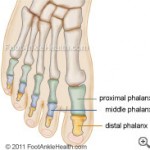Sore feet are a very common problem for people all over the world. Sore feet can make things such as standing, walking, running, dancing, or working extremely difficult.
Unfortunately, most people do not pay attention to their feet until they are sore. Sore feet are sometimes a symptom of an underlying problem or condition.
Our feet can become sore due to overuse, or due to a condition such as plantar fasciitis or bunions. The soreness may be felt in the arch, in the ball of the foot, or in the heel.
Sore Feet Symptoms To Pay Attention To
Depending on the cause of the soreness, additional symptoms may be present, including:
- Redness
- Tenderness to the touch
- Inflammation
- Aching, dull pain
- Pain felt in other areas of the body, such as ankles, knees, hips or back
- Difficulty walking
- Difficulty wearing shoes
Why Are My Feet Sore?
There is a long list of reasons why you may be experiencing sore feet. Some causes are simple and require simple fixes, while others are more complicated and require more complex treatment.
Simple causes for a sore foot include:
- Overuse
- Improper footwear or ill-fitting footwear
- New pair of shoes
- Age
- Obesity
- Pregnancy
- Muscle strain
- Foot trauma
- Sports injury
- Ligament strain
- Flat feet
More serious causes for sore feet include:
- Foot fracture
- Broken foot
- Sprained ankle
- Arthritis
- Ankle strain
- Bunions
- Plantar warts
- Bone tumor
- Koehler’s disease
- Athlete’s foot
- Tendonitis
- Achilles tendonitis
- Gangrene
- Blocked arteries
- Foot ulcer
- Metatarsalgia
- Gout
- Foot disorder
- Foot deformity
- Plantar fasciitis
- Morton’s neuroma
- Nerve entrapment
- Diabetes
- Tarsal tunnel syndrome
This list focuses on the more common causes of sore feet, and it is is not at all complete. There are many different causes of sore feet, so if you are experiencing this problem chronically, it is important that you seek medical attention from a podiatrist for a proper diagnosis.
Finding the underlying cause will enable you to minimize or eliminate the soreness in your feet.
Remember, the soreness can be caused by any of the twenty-six bones, thirty-three joints, or the more than 100 muscles, ligaments, and tendons in the foot.
Here is a look at the most common causes of sore feet, based on region:
- Heel: Plantar fasciitis, heel spurs, calluses, and dry, cracked heels
- Arch: Flat feet, pes planus or fallen arches, plantar warts, Metatarsalgia, pes cavus, and overpronation
- Toes: Broken toe, bunions, hallux rigidus, turf toe, and hallux limitus
- Ball of foot: Metatarsalgia and Morton’s neuroma
Diagnosing Sore Feet – What To Expect
Your doctor will want to know more about the symptoms you are experiencing, and the location and severity of the soreness.
He or she will also want to know more about your daily activities and the activities leading up to the problem. To rule out specific causes, your doctor may use one or more of the following diagnostic testing methods:
- Physical examination
- Imaging tests such as x-rays, ultrasounds, MRI, and CT scans to rule out fractures, strains and sprains
- Blood tests, rule out conditions such as diabetes
- Nerve conduction velocity study, to rule out neuropathy
- Electromyelogram (EMG), to rule out neuropathy
- Synovial joint fluid aspiration, to rule out joint-related problems
How Can I Get Rid Of My Sore Feet?
Seeing a podiatrist about your sore feet does not mean that you will have to spend hundreds of dollars to relieve the pain.
After a diagnosis, your doctor will be able to create an appropriate, cost-effective treatment plan for you based on the severity and cause of the soreness.
Many of these treatment options can be purchased over-the-counter. Here is a look at some of the most common treatment options for sore feet:
- Orthotics such as shoe inserts and additional padding to increase arch support
- Over-the-counter medication to reduce pain, such as ibuprofen or aspirin
- Massage
- Stretching exercises (See Plantar Fasciitis Exercises)
- RICE method (rest, ice, compression and elevation)
- Water-type exercises such as swimming
- Weight loss
- Soaking feet in warm water
- Multivitamin supplements
In most cases, sore feet can be eliminated with a little TLC during the times when you are not up and around.
The most common cause of a sore foot is overuse. If you have no choice but to be on your feet, you may benefit from shoes that offer more support, foot and ankle stability, and protection. These are things that should be discussed with your podiatrist before purchasing shoes.
The treatment options listed above can also be used as preventive measures. For example, performing stretching exercises before bed, before getting out of bed in the morning, and before and after any type of exercise routine can prevent sore feet by allowing the muscles to warm up before exertion.
If you are gaining weight for reasons other than pregnancy, you can also try to prevent sore feet and additional symptoms by losing weight in a healthy way. Eating right can also give your muscles and bones the nutrients they need to stay strong and healthy.
Talking to Your Doctor
Here are some questions you may want to ask your doctor about sore feet:
- I have to be on my feet for work, what types of shoes are best for my job?
- What are the best over-the-counter medications to relieve my symptoms?
- What are the best stretching exercises to relieve my symptoms?
- If the pain persists, how long should I wait to see you again?
- What prevention measures can I take?




